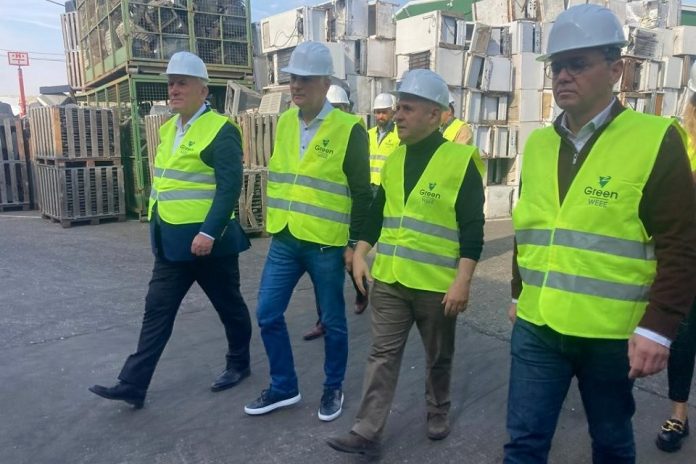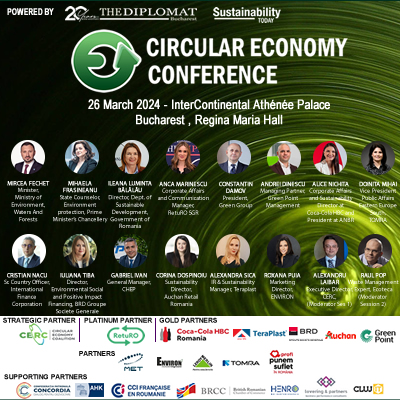The Economic, Industries and Services Committee of the Senate conducted a working visit to the GreenGroup recycling park in Buzau. The initiative was launched by the Coalition for the Circular Economy (CERC), with the aim of facilitating a constructive dialogue between central authorities, local authorities, and industry, aiming to identify the challenges and opportunities of the circular economy in the context of the current energy and raw materials crisis.
The members of the Commission, together with the representatives of the Coalition, visited the Buzau recycling park, which carries out recycling operations of electronic equipment and PET packaging, as well as the production plant of polyester synthetic fibre from recycled PET.
During the visit, the representatives of the Coalition for the Circular Economy pointed out that waste is an important resource, which ensures both the regeneration of materials and a substantial reduction of energy in production chains. Thus, the recycling industry has all the attributes to be considered a critical industry.
At the end of the visit, the Coalition for the Circular Economy organized a meeting at the Buzau City Hall, which was attended by Constantin Toma, the Mayor of Buzau. The main topic of the discussion centred around the legislative innovations and programs to stimulate the circular economy on the agenda of the central authorities.
Daniel Zamfir, President of the Senate Economic, Industries and Services Committee: “In the context of the current deep energy crisis, the circular economy model that we will have to promote and adopt at all levels of the Romanian economy, comes with solutions that deserve all the attention and the involvement of the legislature, but especially of the Economic Commission, Industries and Services. This is how the energy independence, so desired, has a supporter in the circular economy model, which also comes with the provision of raw materials, but also with an effect of approximately 50 percent decarbonization. During the visit, we also identified another direction of action, that of repair for reuse of electrical and electronic equipment, collected for recycling, but which can be repaired and reused especially in equipping schools, kindergartens or hospitals that do not benefit from budgets for the purchase of household appliances.”
At the same time, the plans of the local authority were discussed for carrying out an extensive program of sustainable development of Buzau for the next four years, which aims to transform the city into a national circular economy centre.
Constantin Toma, Mayor of the Municipality of Buzau: “Buzau is the first city in Romania with a circularity strategy, carried out two years before the National Strategy for the Circular Economy. Moreover, a series of projects with an impact on the city’s sustainability performance have been realized so far, such as the Green School, a reference project for the City Hall. The school collects waste in 8 fractions, rainwater for the public network and produces more solar energy than it consumes. And in the new development program, we have some very ambitious plans: to realize a circular use of water in the Municipality of Buzau, by taking, treating, storing, and reusing, as well as to improve air quality, by providing 100m2 of green spaces per capita inhabitant until 2030. Here, in Buzau, the circular economy has entered a practical phase, because we understood from the beginning the major benefits it comes with: it is a model of healthy development of cities, which when implemented leads to improving people’s quality of life.”
Constantin Damov, President of the Coalition for the Circular Economy: “In the conditions of an acute crisis of raw materials and energy, the model of the circular economy is probably the only way of sustainable development, not only of industry and the economy, but even of local communities. Eliminating waste, using material resources in infinite cycles, capturing, and reusing water and decarbonizing all activities are our tasks for the coming years. Recycling comes not only with obtaining necessary materials, but also with a decrease in energy requirements. Recycling aluminium is 95 percent energy saving, plastics 75 percent, paper and cardboard 40 percent, glass 50 percent and the list goes on, ultimately halving energy consumption.”




